Ditch the Toxic Air Freshener: Your Guide to Essential Oils and Aromatherapy
June 16, 2013 3You walk into a spa and your muscles instantly relax, your mouth twitches a little into a smile and you feel like you want to stay there all day. It isn’t only because you’re anticipating that long-awaited massage session, it is also because they set the perfect environment for relaxation — and that includes the perfect aromas.
With a little basic knowledge of essential oils and a little experimenting, your own home can feel like that heavenly spa to welcome you with relaxing aromas as you step in after a long day at work.
Whether you believe in alternative medicine or not, aromas certainly do something to your senses; you can instantly feel a sense of peace washing over you when you smell lavender, and essential oils have the added benefit of filling your air with pleasant and natural scents without the added chemicals.
A major bonus to essential oils is that while air fresheners have been proven to have various dangerous side effects, essential oils actually posses various health benefits and no side effects when used properly. Air fresheners have been proven to cause allergies and asthmas, as well as contain dangerous hormone disrupting substances, phthalates. Exposure to phthalates may interfere with the production of testosterone and cause reproductive abnormalities, including poor semen quality and changes in genital formation.
So instead of your usual plug-in or sprayed freshener, try using a reed diffuser, a tea light diffuser or an oil burner with essential oils of your choice.
How to use essential oils
– Oil burner and tea light diffuser: Oil burners and tea light diffusers are normally ceramic or clay containers where you either pour a few drops of the oil or mix the oil with water and use the heat of a small candle to release the aroma. Although this is one of the easiest and most common methods, they have one downside in that heating the oil up to release its aroma may cause it to lose some of its healing properties. So while oil burners are good for freshening up your house and getting you in that relaxed, peaceful mindset without using chemicals-raiden substances, it isn’t the best for aromatherapy purposes.
– Reed diffuser: Reed diffusers are normally made of glass bottles with narrow necks and come with a bunch of reeds that you stick into the bottle when you open it. The reeds carry the scent of the oil and slowly release its aroma. These are great for aromatherapy purposes because they do not disrupt the characteristics of the oil, but they are better used in smaller spaces, like bathrooms, as the scent is normally slowly released and so not strong enough for bigger spaces. Alternatively, use several ones for your living room, for instance, for a stronger smell.
– Nebulizer: Some air nebulizers can be used with essential oils, but this option is rather limited in Egypt.
– Direct inhalation: Some essential oils have been proven to help the respiratory system, like rosemary, marjoram and peppermint. Simply add a few drops of the essential oil to a bowl of hot water, place your face 30 cm away from the bowl and cover your head and the bowl with a towel to inhale the vapor.
– Tissue: Simply dab a tissue in the essential oil and leave it on a plate on your coffee table, this is an easy, cheap and effective way to enjoy the aromas without losing the oil’s healing benefits to the heat.
–Water: You can simply add a few drops of essential oil to a shallow pot of water and leave it near you to maintain all its benefits; or for a stronger smell boil the water for a faster aroma-release, but note that heat will destroy some of its healing qualities.
– Bath: Aromatherapy works really well with baths; you can draw yourself a nice, hot bath and add a few drops of lavender for a great night sleep or to relax after a busy day.
– Moisturizers and massages: Essential oils shouldn’t be applied directly on the skin, but they work wonders when you mix a few drops of the essential oil of your choice with a carrier oil, like sweet almond oil, olive oil or sesame seed oil.
The 101 guide to essential oils
– Vanilla:
– Antioxidant
– Aphrodisiac
– Helps reduce fever
– Natural anti-depressant
– Soothes the nerves and relieves anxiety and stress
– Regularize menstruation
– Lemon:
– Promotes concentration
– Can be used on nails and cuticles twice a week for stronger nails
– Boosts immunity when diluted with water and drunk regularly
– Helps ease nausea
– Helps with blood flow
– Relieves infections, colds and flus
– Relieves headaches
– Removes dead skin
– Thyme:
– Helps enhance memory and concentration.
– Has anti-rheumatic, antiseptic and antibacterial properties.
– Strengthens nerves
– Combats depression
– Useful with respiratory issues and asthma as well as sore throats
– Rosemary:
– Helps enhance memory
– Promotes concentration and stimulates the brain
– Relieves nerves exhaustion, migraines and headaches
– Has antiseptic properties
– Has diuretic properties and relieves water retention
– Eases skin inflammation and helps with various skin diseases
– Promotes hair growth
– Jasmine:
– Antidepressant
– Aphrodisiac
– Has antiseptic and disinfectant qualities
– Is a good expectorant and helps with asthma, coughs and congestion
– Helps ease menstruation pains
– Good for lactation
– Cinnamon:
– Helps enhance memory.
– Helps with the respiration system
– Eases period pains
– Helps with rheumatism
– Stimulates blood circulation
– Peppermint:
– Helps ease nausea.
– Helps with bad breath
– Add four drops of peppermint oil to two tablespoons of water and drink to stop hiccups
– Helps with digestion, especially gas, and heartburn
– Helps with inflammation of the mouth and throat
– Helps ease menstrual issues
– Soothes headaches and toothaches
– Repels mosquitoes
– Chamomile:
– Helps ease nausea.
– Has antiseptic, anti-inflammatory, antibiotic and disinfectant properties
– Is a good stimulant and antidepressant
– Calms the nerves and aids in sleep
– Relieves headaches and toothaches
– Helps with digestion
– Can be used as a tonic
– Lavender:
– Helps ease nausea.
– Natural breath freshener
– Soothing, nerve calming and reduces anxiety
– Helps with insomnia
– Beneficial for respiratory issues
– Is a good toner
– Helps with sunburns and insect bites
Useful Tips
– Drench toothpicks in peppermint oil and let them sit for 24 hours, shaking every few hours.
– Add a few drops of peppermint to the insides of your shoes in summer to keep your feet cool and deodorized.
– Lemon oil can hep remove gum and band-aid residues from skin, carpets or even hair.
– Blend 20 to 40 drops of lavender or peppermint oils to one cup of baking soda and sprinkle on a carpet. Leave for 30 minutes then vacuum; deodorizes and kills microbes.
– Add lemon to the cleaning water to wipe the kitchen counters and floors to kill germs and add a zesty flavor.
– To impress guests and make your shower experience more relaxing, mix half a cup of distilled water with 20 drops of essential oil of your choice and spray your towels with the mixture.
– Lemon helps remove oil and grease in clothes, counters and dishes.
Things to look out for
– Method of extraction: The method of extraction is key in essential oils, make sure that the source of your oil clearly states that it had been extracted through cold press method so that you know that the oils are keeping all their properties. Other methods used for harder to extract oils include solvent extraction and distillation.
– Purity: There are various blends out there, make sure that you buy from a trustworthy source so you know for sure that your precious oil hasn’t been mixed or diluted with other plants. When it comes to plants that we can grow in Egypt, like roses, for instance, the chances of the oil being blended with a cheaper plant oil are minimal, but when it comes to plants like jojoba, which are imported and not grown locally, you run the chances of impure blends to bring down the cost. An indication of the purity of the oil would be the label and the price. If the label doesn’t clearly state 100% essential oil and has anything the likes of “made from essential oils” or “fragrance oil” then it has been blended and diluted. Also, if all the oils are mono-priced you can tell something is off, you would normally pay much more for jojoba oil, for instance, than you would for sweet almond oil.
Editor’s note: We love Nefertari’s collection of pure essential and carrier oils. Try their jasmine oil for a great mood-lifting scent or their coconut oil for a perfect after-shower moisturizer.

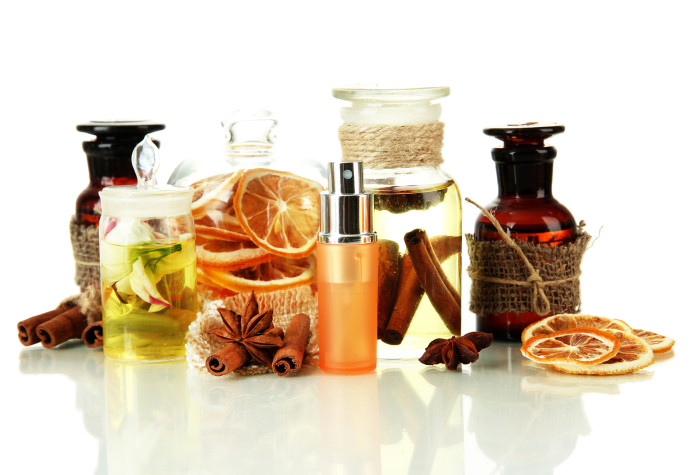
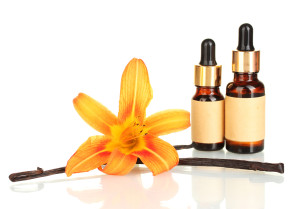
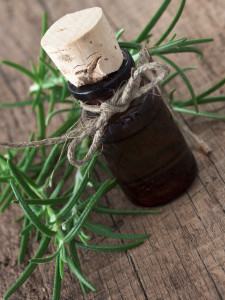
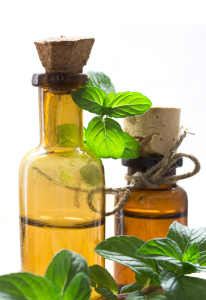
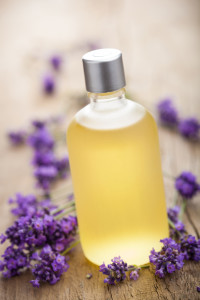
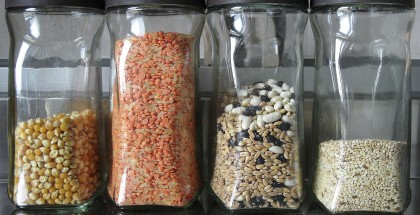




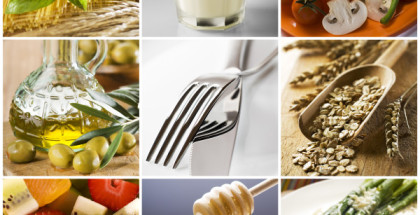


















Comments